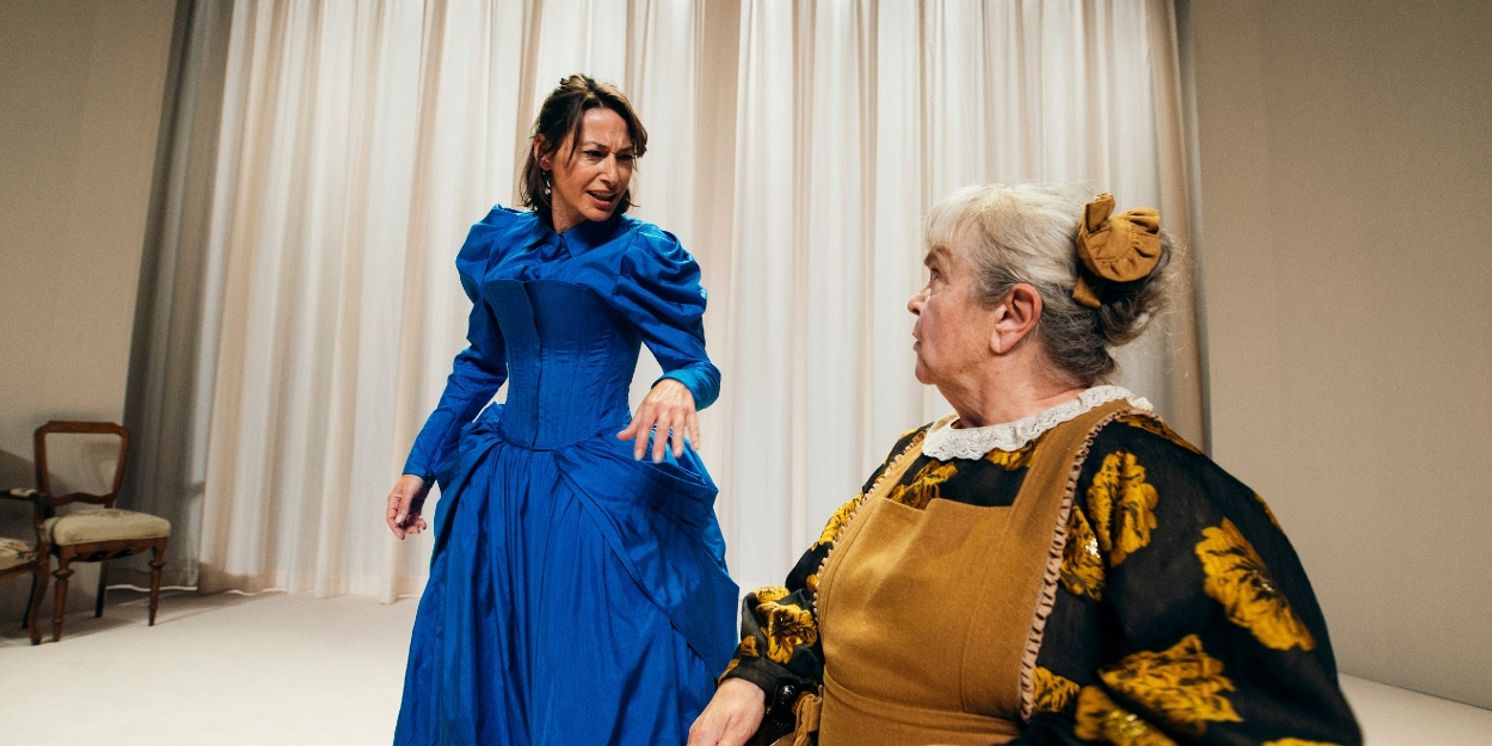Review: A DOLL'S HOUSE, PART 2 at Christiania Theater
A Rollercoaster of Emotions

When it was announced that the next big production at Christiania theater would be a play with the nifty title "Et dukkehjem 2 (A Doll's House, Part 2)" I didn't know what to think. I had next to no knowledge of the piece, other than it was a Broadway play which ran during the 2017 season. Was it a sequel to Ibsen's play? A Drama? A comedy? A "social realism" post-feminist work examining the rules of society and gender? Well, as it turns out it's all those things... and more!
In the play American writer Lucas Hnath presents a lively, uninterrupted ninety-minute engrossing continuation of one of theatre’s most powerful plays. It might be seen as a daring transgression, a playful challenge to a classic work. Nevertheless, the concise and economical nature of the dialogue embodies the essence of Ibsen (witht the addition of humour). Never do the characters come across as artificial. Instead of belittling or trivializing Nora's departure, Hnath's play serves as a contemplation of it. In 'A Doll's House Part 2,' every character still grapples with the consequences of Nora's actions.
Hnath's intelligent and tightly woven sequel fast-forwards 15 years, opening with Nora (Pia Tjelta) revisiting her former marital home for the first time since that pivotal day. Now happily estranged from her husband Torvald (Ola G. Furuseth), she has transformed herself into an author who writes powerful and popular critiques of marriage under a pseudonym. However, she has just learned that Torvald never actually divorced her, leaving her technically married, a situation she adamantly refuses to accept.
When Nora makes her initial entrance on the white, beautiful and minimalistic set, she exudes complete confidence. She effortlessly brushes off the skepticism of the family servant, Anna Marie (brilliantly played by Anne Marit Jacobsen). She smoothly evades any inquiries about her children. She's a fascinating and unsettling mix of qualities: Nora's readiness to abandon her kids remains disconcerting, yet within the context of a story set in 1894, her actions appear so rebellious as to be revolutionary, as if she were a freedom fighter challenging the oppressive Victorian patriarchy. A systemic societal injustice within the institution of marriage that was exposed by Ibsen, in his original text.
Nora's doubts only seem to surface when she agrees to meet her youngest daughter, Emmy (Flo Fagerli), for the first time, ostensibly to convince her to seek a divorce from Torvald. Accustomed to shocking people and anticipating tears and turmoil, Nora is visibly taken aback by Emmy's cheerful indifference.
Essentially, Hnath has crafted a play that centers on the idea of Nora as a semi-legendary figure and how her actions have taken on symbolic significance through the years. It diverges from being a conventional sequel, infusing humor and self-awareness into the narrative. At times, it playfully engages with metatheater, and certain lines, like Anna Maria's direct plea to Nora, add a touch of amusement: "the door's right there – I'm sure you remember how to exit!"
It might all seem like an exceptionally clever literary analysis experiment, and, in fact, it does possess the qualities of such an experiment. However, in this unembellished, intense production, Pia Tjelta's outstanding performance truly embodies Nora for us. She exudes a composed self-assuredness that can be disconcerting, even maddening, as she expects everyone to conform to her desires, convinced that it's for their own good.
Fractures begin to surface in her facade when Nora encounters Emmy. Her conviction remains unwavering; however, through Tjelta's subtle pained expressions and almost imperceptible hesitations, we observe that Nora's belief in her pivotal role in everyone else's lives is misguided. She has confused the symbolic importance of her actions with her personal significance to the people she left behind. The truth unsettles her, but it doesn't evoke regret. The deed is accomplished, and it remains eternally so.
The temperature created on stage is electrifying. The actors leave no stone unturned and it is captivating to experience them all, and you reflect in real-time with each character. You both sympathize while become disapproving of what they are saying in the next. It feels like an acting relay team. First led by Anne Marit Jacobsen in the first scene. Then by Pia Tjelta and Ola G. Furuseth. When Flo Fagerli enters enters midway the tension shifts yet again, and she presents her Emmy as both strong-willed and yet a child with traumas. A very impressive ordeal such a young actress.
There are four characters in the play, yet there are five chairs on stage – something that might indicate, in a symbolic way, that there is a fifth persona here/not here. Could that be the version of Nora that was she left there fifteen years prior? I feel this small detail is not coincidental and very intriguing. The play is yet again well crafted by director Mattis Herman Nyquist. He has put a very lively touch to the proceedings by opting for the text to almost feel spontaneous and improvised. In some places it feels like we are eavesdropping a very private argument that has all the facets of emotions. It can quickly escalate from softspoken to screaming in minutes, which is both exhilarating and uncomfortable. It is obvious that he has let the actors have fun with the text, but it never comes across as disjointed in any way. The action is helped by a very soothing underscoring, beautifully composed by Nils Martin Larsen. This is a very good choice as it helps reduce the tension, which can be brutal at times.
Whether "Et Dukkehjem 2" is as progressive as Ibsen's original is beside the point, because it doesn't have to be. It doesn't take a rocket scientist to see that this purely an author’s fan fiction of what might have happened after Nora left. But it can still be progressive and exceptionally well crafted at the same time. If I had to nitpick a little in the writing it is that Hnath's determination not to mess with Ibsen's story leads to some confusing plot twists, and I had some trouble figuring out what Nora's plan was supposed to be at the end. But this isn't really about what happened after Nora left because we already know that part – Nora became a legend, one of literature's most iconic characters. Hnath's play is a witty and sometimes funny look at that legendary status.

Reader Reviews

Videos


